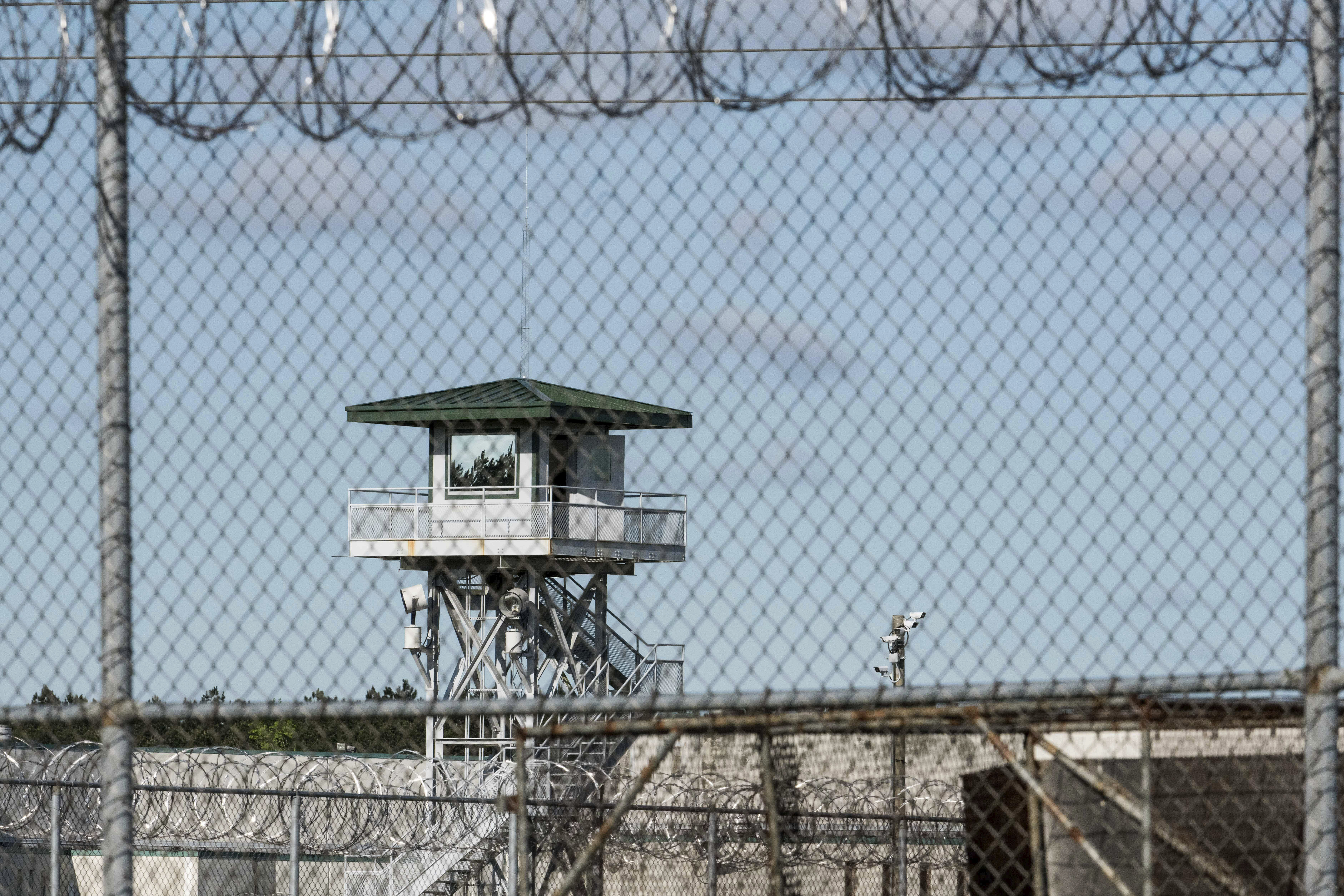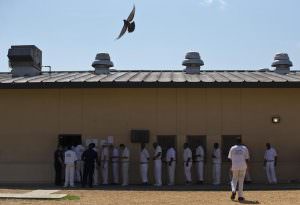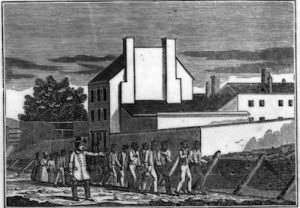Prisoners Strike Nationwide, Denounce ‘Modern-Day Slavery’
Led by Jailhouse Lawyers Speak, inmates are calling for a restoration of voting rights, rehabilitation services and more. A guard tower at Lee Correctional Institution in South Carolina. (Sean Rayford / AP)
A guard tower at Lee Correctional Institution in South Carolina. (Sean Rayford / AP)
On Tuesday, 47 years to the day after African-American activist and inmate George Jackson was gunned down attempting to escape San Quentin State Prison in California, prisoners across the country declared a two-week strike to protest conditions they liken to “modern-day slavery.” According to USA Today, they will “abstain from reporting to their assigned jobs, halt commissary spending, hold peaceful sit-in protests and refuse to eat” during the protest.
“Fundamentally, it’s a human issue,” read an Aug. 10 statement from Jailhouse Lawyers Speak, the prisoners’ rights group that organized the demonstration. “Prisoners understand they are being treated as animals. We know that our conditions are causing physical harm and deaths that could be avoided if prison policy makers actually gave a damn. … Prisons in America are a war zone. Every day prisoners are harmed due to conditions of confinement. For some of us, it’s as if we are already dead, so what do we have to lose?”
The call to action followed a riot in April at Lee Correctional Institution in South Carolina that left seven inmates dead and dozens more injured. At the time, the Department of Corrections blamed a conflict between opposing gangs over territory and contraband such as proscribed cellphones. But as Raven Rakia writes for The Nation, prisoners at the facility “painted a more complicated picture,” citing inhumane conditions and guards’ hours-long delay before intervening in the melee.
“Let this nationwide strike be a wake up; prisoners will destroy the crops,” the statement concluded. “We will not comply. We will not allow you to exploit our families’ hard-earned dollars anymore. Striking the match let it go up in a blaze. We are humans!”
Jailhouse Lawyers Speak has published a list of 10 demands, among them the repeal of the Prison Litigation Reform Act—a holdover from President Bill Clinton’s tough-on-crime agenda that forces inmates to clear an array of legal hurdles before filing a federal lawsuit. Others include the immediate improvement of prison conditions; the restoration of voting rights for all confined citizens; and the establishment of rehabilitation services for violent and nonviolent offenders alike.
“If the strike is widespread enough, it could be effective,” Lea Johnson, a professor at the University of Florida Levin College of Law, told USA Today. “These circumstances like poor labor conditions, poor prison conditions, unpaid labor, and lack of access to mental health treatment exist seemingly behind closed doors. By going on national strike, you pull back the curtain and it can force legislators to act.”
So far, inmates in 17 states have participated in the strike. The demonstration is scheduled to end Sept. 9, on the 47th anniversary of the Attica Prison uprising.
Read more about the strike at The Nation.
Your support matters…Independent journalism is under threat and overshadowed by heavily funded mainstream media.
You can help level the playing field. Become a member.
Your tax-deductible contribution keeps us digging beneath the headlines to give you thought-provoking, investigative reporting and analysis that unearths what's really happening- without compromise.
Give today to support our courageous, independent journalists.





You need to be a supporter to comment.
There are currently no responses to this article.
Be the first to respond.